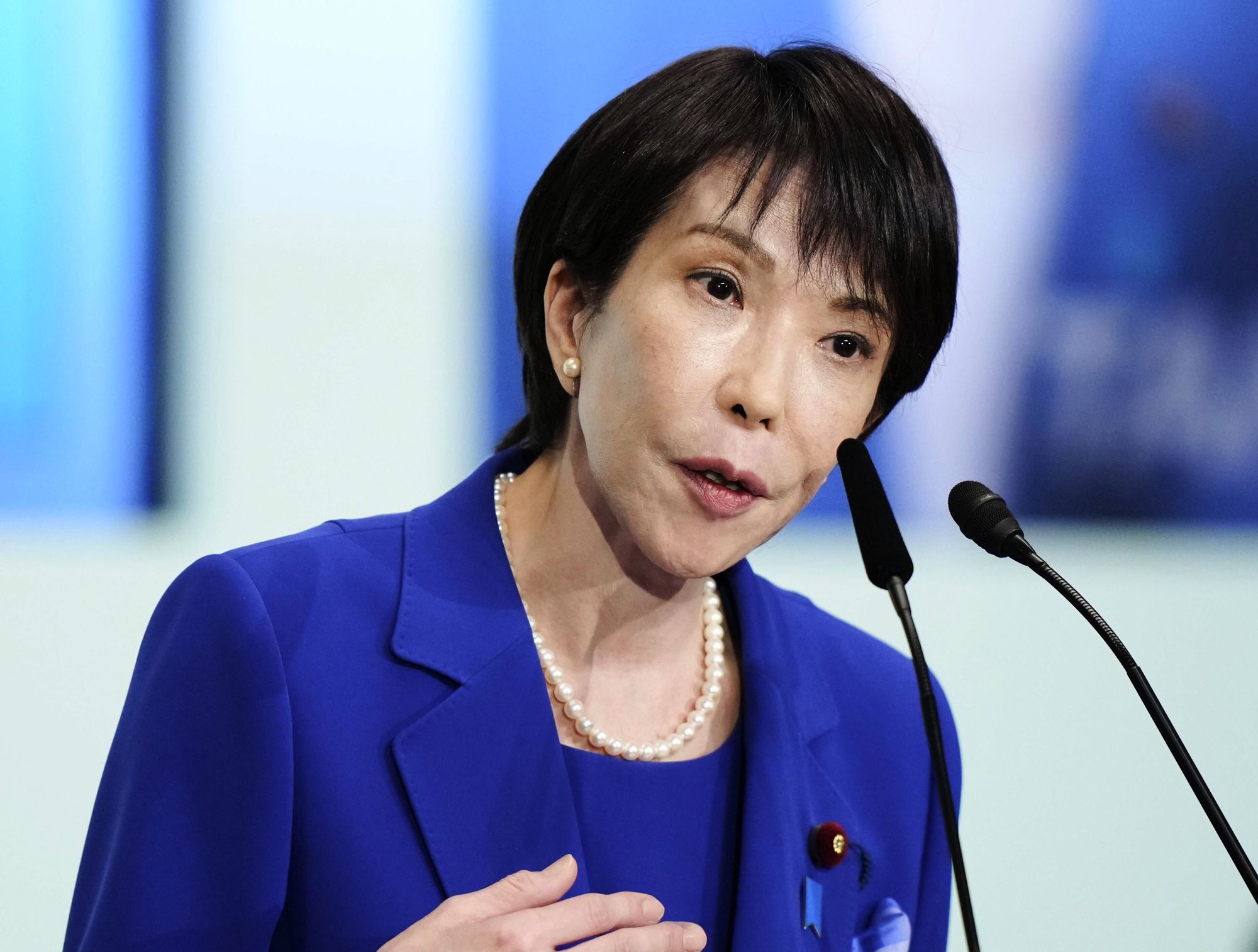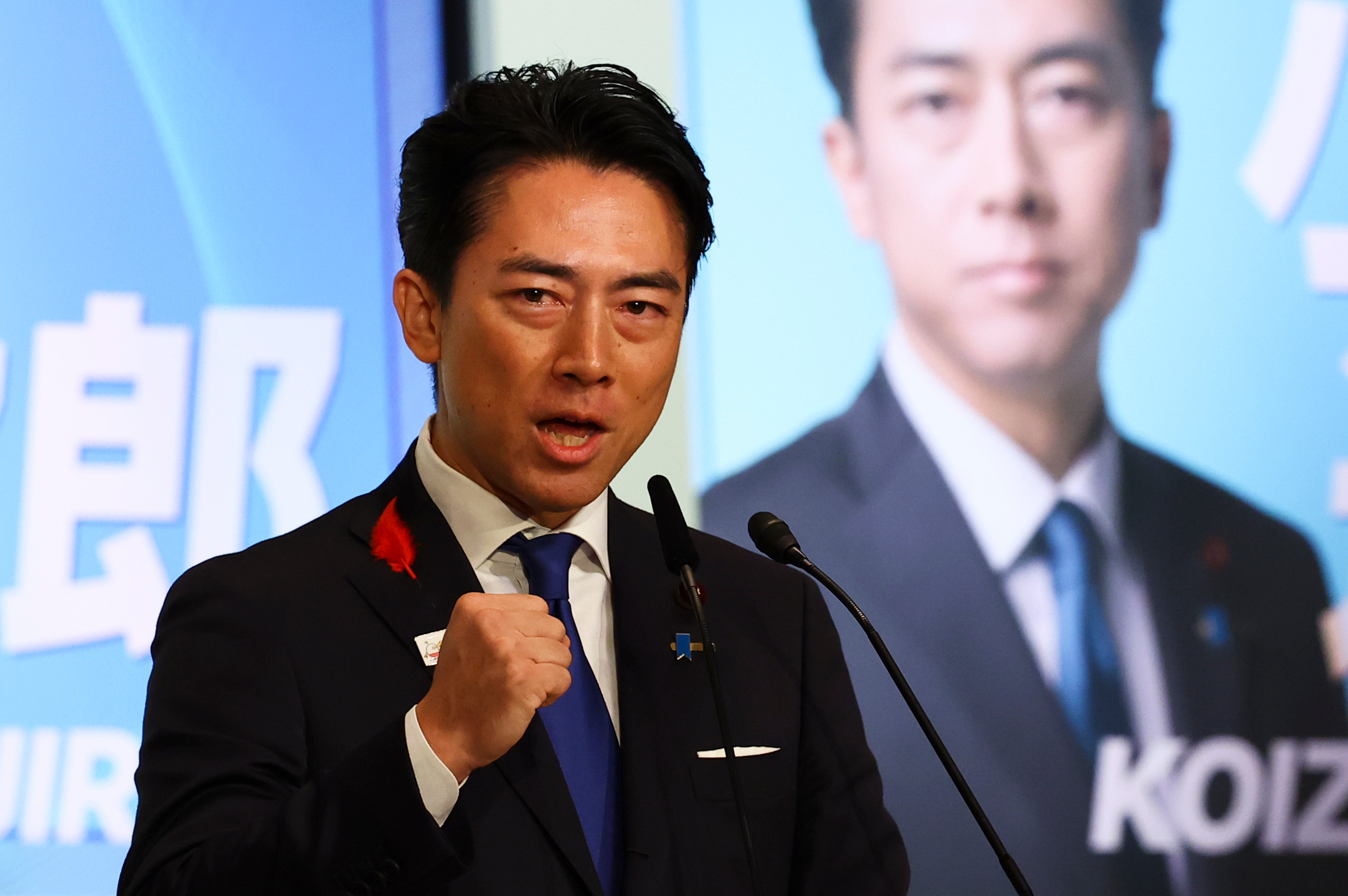Hardline nationalist Sanae Takaichi has won the leadership election for Japan’s ruling party, paving the way for the country to get its first female prime minister – and shifting the ideological stance of its government dramatically towards the right.
Ms Takaichi, 64, is set to succeed prime minister Shigeru Ishiba, as their LDP party remains the largest in parliament. But with recent elections seeing the LDP-led coalition losing its majority in both chambers of parliament, she will need support from opposition parties to govern smoothly.
Saturday’s LDP leadership contest was a five-way race but Ms Takaichi, who has repeatedly referred to Margaret Thatcher as a source of inspiration, and the more moderate political scion Shinjiro Koizumi, 44, were always seen as favourites. They emerged as the top two candidates before Ms Takaichi secured victory in a run-off vote.
Ms Takaichi now faces the task of winning back trust from a public angered by rising prices and corruption scandals, and drawn to opposition groups promising big stimulus and clampdowns on foreigners.
Though her campaign did not focus overwhelmingly on her gender, Ms Takaichi noted in her victory speech on Saturday evening that she had “made history for the LDP”, thanking those who supported and voted for her.
“Right now, instead of savouring joy, I’m overwhelmed by what’s ahead, a mountain of challenges that I have to tackle with help from all of you,” she said.
“We must make our party one that is more energetic and cheerful so that we can change the people’s worries into hope,” Ms Takaichi added, calling for cooperation from LDP lawmakers. “Otherwise, we can’t rebuild our party.”
Parliament is expected to convene on 15 October to formally elect the next prime minister.

A former economic security and interior minister, Ms Takaichi has repeatedly referred to the late British prime minister Margaret Thatcher as her inspiration, citing her strong character and convictions coupled with her “womanly warmth”. She said she met “the Iron Lady” at a symposium shortly before Thatcher’s death in 2013.
A drummer and a fan of heavy metal, Ms Takaichi is no stranger to creating noise herself. She is a regular visitor to the Yasukuni shrine, which honours Japan‘s war dead – including some executed war criminals – and is viewed by some Asian neighbours as a symbol of its past militarism.
The US ambassador to Japan, George Glass, congratulated Ms Takaichi, posting on X that he looked forward to strengthening the Japan-US partnership “on every front”.
South Korea will seek to “cooperate to maintain the positive momentum in South Korea-Japan relations”, its president Lee Jae Myung’s office said in a statement.
Ms Takaichi favours revising Japan’s pacifist postwar constitution and suggested this year that Japan could form a “quasi-security alliance” with Taiwan, the democratically governed island claimed by China that sits close to Japan’s Okinawa island chain.
Taiwan president Lai Ching-te welcomed her election, saying she was a “steadfast friend of Taiwan”.
“It is hoped that under the leadership of the new (LDP) president Takaichi, Taiwan and Japan can deepen their partnership in areas such as economic trade, security, and technological cooperation,” he said in a statement.
If elected prime minister, Ms Takaichi said she would travel overseas more regularly than her predecessor to spread the word that “Japan is Back!”
“Takaichi is a very experienced politician. She has had some experience working in the US as well, [she is] a long-term observer of US-Japan relations, so that’s her strength,” said Yuka Hayashi, vice president of the Asia Group, a Washington-based strategic advisory firm.
“She said that she’s confident that she could build a very strong personal relationship with President Trump. And the reason for that is her policy focuses on what she calls the ‘Japan First’ policy. And that kind of corresponds to President Trump’s America First policy. She sees that sort of common thread there. On the other hand, she’s a hardliner, very conservative when it comes to Japan’s relationship with its Asian neighbours,” said Mr Hayashi.

“She has had a very hawkish stance on World War II legacy issues. She has insisted on visiting the Yasukuni Shrine numerous times, knowing that would inflame Japan’s relationship with its neighbours. So there is some concern that she could fuel tensions with the relationship with South Korea and China.
“This is a very challenging time for the LDP so I think she would probably try to focus on party unity and be very careful about taking excessively conservative hardline stances in foreign policy.”
Although Ms Takaichi has vowed to appoint more women to cabinet positions – an area in which Japan continues to trail behind its G7 counterparts – surveys suggest her conservative views resonate more strongly with men than with women.
She remains opposed to same-sex marriage and to allowing married couples to use separate surnames – policies that enjoy wide public backing but face fierce resistance within conservative ranks.
However, it is her economic agenda that could send the greatest tremors through Japan’s political and financial establishment.
A protégé of the late Shinzo Abe and a staunch supporter of his “Abenomics” stimulus programme, Ms Takaichi has urged increased public spending and tax cuts to offset the rising cost of living, while criticising the Bank of Japan’s decision to hike interest rates.
“I have thrown away my own work-life balance and I will work, work, work,” Ms Takaichi said in her victory speech.
“Recently, I have heard harsh voices from across the country saying we don’t know what the LDP stands for anymore,” she had said in a speech before the second-round vote. “That sense of urgency drove me. I wanted to turn people’s anxieties about their daily lives and the future into hope.”
Born in Nara, western Japan, to a police officer mother and a father employed in the country’s vital automotive sector, Ms Takaichi has often drawn on her roots to shape her political image.
In a speech last month, she denounced tourists for mistreating the sacred deer that freely wander Nara Park, promising tougher action against unruly foreigners. It is the sort of stance that has struck a chord with voters amid record numbers of tourists visiting Japan – though when pressed, Ms Takaichi struggled to provide evidence for incidents of the kinds of animal abuse she described.
A graduate of Kobe University with a degree in business management, Ms Takaichi later served as a congressional fellow in the US Congress, according to her official website. She entered politics in 1993, winning a seat in the lower house as an independent before joining the Liberal Democratic Party three years later.

